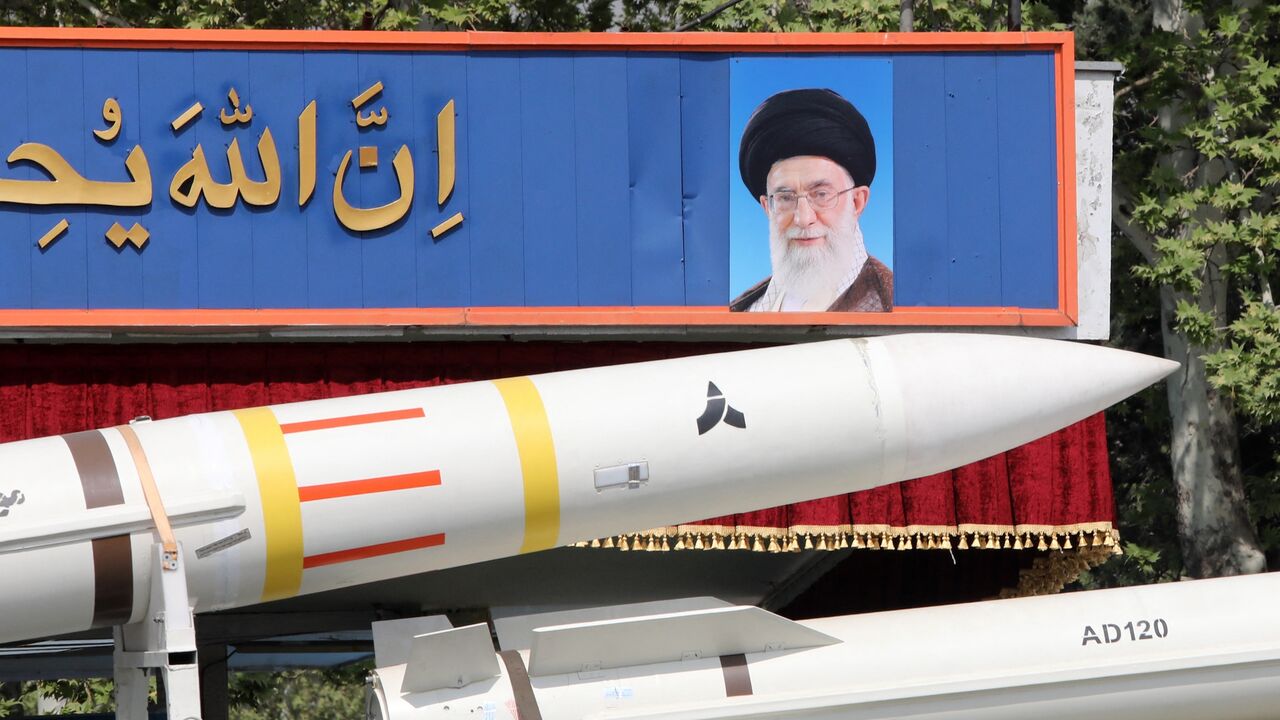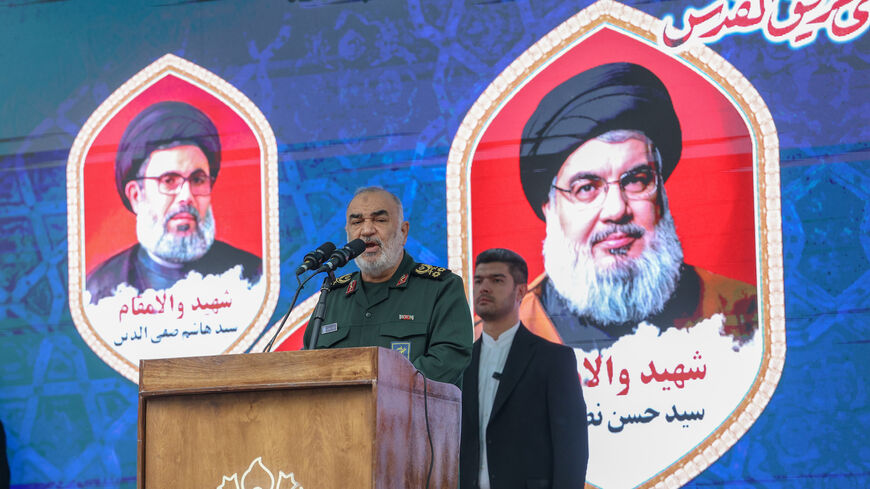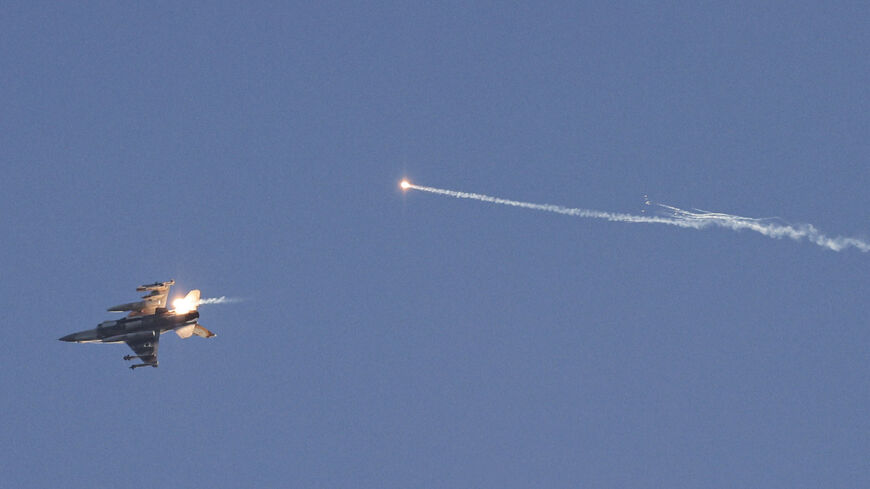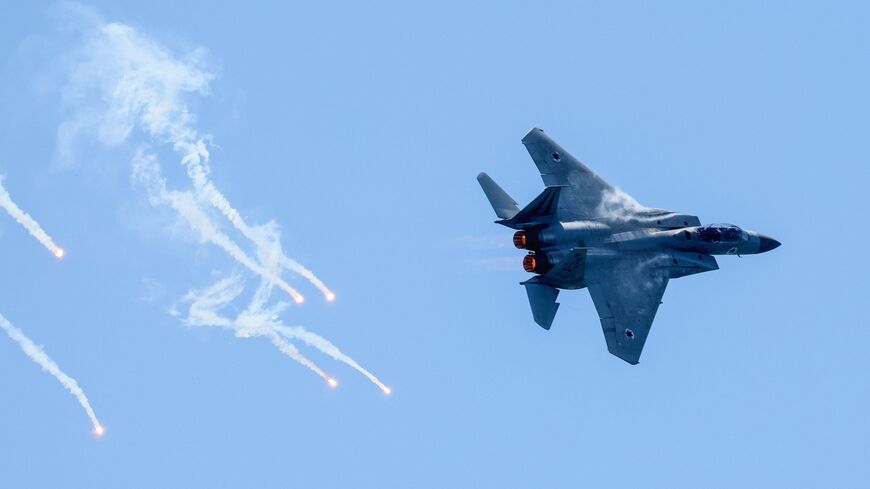Iran’s IRGC plans 'complex' retaliation to Israel: What we know
Iranian leaders have decided to respond to last week's Israeli attack, but the nature and timing remain unclear amid conflicting reports.

Tensions in the Middle East continue to run high as Iran escalates threats against Israel, vowing a “crushing response” to Israel strikes on Iranian territory last month.
In the early hours of Oct. 26, Israel launched two waves of airstrikes across Iran, hitting military targets in the cities of Karaj, Mashhad and Tehran.
The Israeli military said its forces had targeted missile manufacturing sites and aerial defenses. Iran's Air Defense Force claimed it had “successfully” repelled the attack, saying that some sites had experienced limited damage. Four Iranian soldiers died in the attack, according to the Iranian army.
The four-hour Israeli attack — its most sustained against Iran to date — came in retaliation an Oct. 1 Iranian attack, in which the Islamic Revolutionary Guard Corps (IRGC) fired ballistic missile at Israel in response to its killing Hezbollah leader Hassan Nasrallah and IRGC Deputy Commander Abbas Nilforoushan on Sept. 27 in an airstrike in Beirut.
Recent statements and threats by various Iranian leaders and military commanders have raised questions about the nature and timing of the Iranian response, as the region braces for further violence.
Escalating rhetoric
Iran's supreme leader, Ayatollah Ali Khamenei, has repeatedly vowed to retaliate for the Israeli attack. Most recently, on Saturday, Khamenei warned Israel and its ally the United States of a “crushing response.”
“The enemies, whether the Zionist regime or the United States of America, will definitely receive a crushing response to what they are doing to Iran and the Iranian nation and to the resistance front,” Khamenei said in a video released by state media.
Echoing similar threats, IRGC commander Maj. Gen. Hossein Salami said Israel and the United States will receive a “tooth-breaking response” from Tehran and its allied resistance groups for any actions taken against Iran.
“On this path, the resistance front and Islamic Iran will equip themselves with everything necessary to confront and triumphantly overcome the enemy . . . with no fear of the threats and saber-rattling of the thugs ruling Washington and Tel Aviv,” Salami said in a speech on Sunday at a rally commemorating the 45th anniversary of the 1979 attack on the US embassy in Tehran.
Speaking at the same ceremony, IRGC deputy commander Brig. Gen. Ali Fadavi also asserted that Iran will launch another attack against Israel in response to its latest “aggression.” He said details could not be revealed, but stressed, “It will certainly be carried out.”
The IRGC launched its first direct attack on Israel in April, launching hundreds of drones in retaliation for a suspected Israeli strike on the Iranian Consulate in Damascus that killed at least seven people, including two IRGC commanders.
Iranian President Masoud Pezeshkian said the intensity of the response to the October attack depends on Israel’s will to stop its military actions in the region.
“Iran will in no way leave any violation of its territory and security unanswered,” he said during a cabinet meeting on Sunday. “They are well aware that any mistake against the Islamic Republic of Iran will be met with a crushing response.”
He added, however, “If they reconsider their actions, accept a cease-fire, and stop the killing of innocent and oppressed people in the region, it may influence the nature and intensity of our response.”
Preparations on the ground
With Iranian leadership sending mixed messages and remaining elusive about the nature of their anticipated retaliation, the Wall Street Journal (WSJ) reported on Sunday that Tehran had informed Arab diplomats about its plan to launch a “complex response” that would involve more powerful warheads and other weapons than it has previously used against Israel.
The US-based paper cited Iranian and Arab officials briefed on the plan as saying the Iranian army will join the IRGC in the upcoming response because its forces suffered casualties in the October attack.
The Iranian source added that Iraqi territory may be used for part of the operation, saying the attack will target Israeli military sites “much more aggressively than last time.”
As for the timing of the operation, the same source said the response would be delivered after the US elections on Tuesday, Nov. 5, to avoid potentially influencing the results, but before the inauguration of the new US president in January.
The US news site Axios had reported on Thursday that Iran might use Iraqi territory to launch the attack on Israel. Two Israeli sources said they had received intelligence about a large number of drones and ballistic missiles possibly being fired from Iraq to avoid another retaliatory strike on its own territory.
On Iran's timing, the Israeli sources said the operation would likely be before the US presidential election. Similarly, a high-ranking Iranian source told CNN on Wednesday that the Israeli attack will be met with a “definitive and painful” response, possibly before the US elections.
According to three other Iranian officials familiar with the plans who spoke to the New York Times on Thursday, Khamenei has already instructed the Supreme National Security Council to prepare the response and that military commanders were drafting a target list of dozens of military sites in Israel. Those officials claimed that Iran would likely launch the attack after the US elections.
Although the timing remains unclear, it seems Iran is preparing for a retaliatory attack.
Kamal Kharrazi, head of Iran’s Strategic Council on Foreign Relations, told al-Mayadeen TV on Friday that Iran could increase the range of its missiles if it “faces an existential threat.”
Another report, on Israeli Channel 13's website, claimed Friday that Israeli and US intelligence are closely monitoring Iranian movements to identify the movement of surface-to-surface missile systems inside the country.









